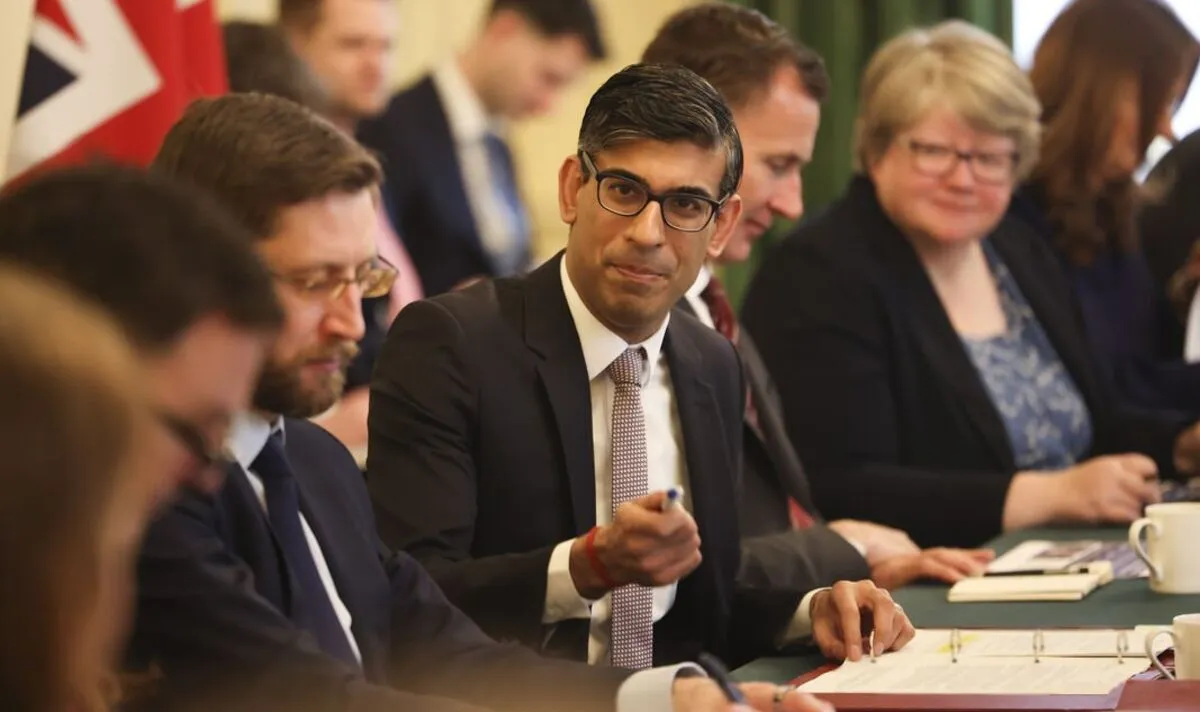Politics
PM Sunak Faces Leadership Challenge Amid Party Split

Prime Minister Rishi Sunak is confronting one of the most turbulent moments of his political career as members of his own party challenge his leadership ahead of the upcoming general election. The Conservative Party, already divided over economic strategy and immigration policy, faces internal unrest that could reshape the future of British politics. With key ministers expressing concern over the government’s direction, Sunak’s ability to maintain unity and restore voter confidence will determine whether his leadership survives the coming months.
Political Tensions Erupt Within the Conservative Party
The leadership challenge has emerged at a critical juncture. The Conservative Party’s approval ratings have continued to slide, with public dissatisfaction fueled by cost-of-living pressures, housing concerns, and healthcare delays. Several senior MPs have reportedly voiced frustration with the government’s handling of economic reform and immigration control. These internal disagreements have exposed deeper ideological divisions within the party, ranging from moderate centrists advocating pragmatic governance to hardliners pushing for stricter policies on taxation and border management.
Behind closed doors, party members have been holding discussions about alternative leadership options, though no formal contenders have officially declared. Analysts suggest that the discontent reflects broader anxieties about the party’s electoral viability. With a general election expected within the next year, some Conservatives fear that continued infighting could hand a significant advantage to the Labour Party, which has steadily gained ground in national polls.
Public reaction has been mixed. Some voters express fatigue with the ongoing political turbulence, while others view the leadership debate as a necessary reckoning for a party struggling to adapt to post-Brexit realities. Political commentators argue that the Conservatives’ internal conflict mirrors wider tensions across the electorate, where economic insecurity and regional inequalities have deepened divisions over the country’s direction.
Sunak’s Response and Strategy for Stability
Prime Minister Sunak has moved quickly to assert control and project confidence. In recent public appearances, he emphasized that the government remains focused on economic growth, inflation reduction, and national security. Sunak’s message to the party has been one of unity, urging members to avoid distractions and concentrate on delivering tangible results for voters. He has highlighted recent improvements in inflation data and employment figures as evidence that the government’s policies are beginning to take effect.
However, challenges persist. Critics within the party argue that Sunak’s leadership style, though steady and data-driven, lacks the charisma and political energy needed to inspire a skeptical electorate. Others maintain that his focus on fiscal discipline has come at the expense of broader public investment and regional regeneration. This divide has complicated his efforts to unify both the party and the public behind a coherent vision for Britain’s future.
In an effort to strengthen his position, Sunak has reshuffled key cabinet roles, bringing in new ministers with reputations for competence and loyalty. His strategy appears aimed at balancing internal factions while projecting a message of renewal. Political observers note that the Prime Minister’s handling of this crisis could define not only his own legacy but also the ideological direction of the Conservative Party for years to come.
The Broader Political Landscape
The unfolding leadership tensions are set against a backdrop of shifting political dynamics across the United Kingdom. The opposition Labour Party, led by Keir Starmer, has capitalized on the government’s internal disarray by presenting itself as a stable alternative. Labour’s recent policy proposals on housing and healthcare have resonated with voters who feel neglected by years of austerity and rising living costs.
Meanwhile, the Liberal Democrats and Scottish National Party continue to strengthen their regional bases, further fragmenting the national vote. In this complex environment, the Conservatives’ internal divisions risk alienating both traditional supporters and undecided voters seeking consistency and accountability in leadership.
The business community has reacted with unease to the political uncertainty. Markets generally favor continuity, and speculation about a potential leadership change has introduced short-term volatility in currency and bond markets. Economists warn that prolonged instability could undermine investor confidence and delay policy decisions on key issues such as trade and energy security.
The international response has also been cautious. European and American observers have noted the parallels between the UK’s political challenges and broader global patterns of leadership fatigue and economic anxiety. The perception of political instability in London could complicate diplomatic negotiations, particularly on trade and climate cooperation, where continuity of leadership is often crucial.
Conclusion
Rishi Sunak’s leadership challenge arrives at a defining moment for both his government and his party. The Prime Minister’s ability to maintain authority, restore unity, and persuade voters of his economic strategy will determine not only his political survival but also the long-term identity of the Conservative Party. While Sunak remains a skilled technocrat with a reputation for stability, he faces a growing demand for vision and connection that transcends fiscal management.
The coming months will test whether Sunak can transform internal dissent into renewed momentum or whether his tenure will become another chapter in the cycle of leadership turmoil that has characterized British politics in recent years. For now, the Conservative Party stands at a crossroads, caught between loyalty to its leader and anxiety over its future. How it navigates this moment will shape the political landscape leading into the next general election.






















